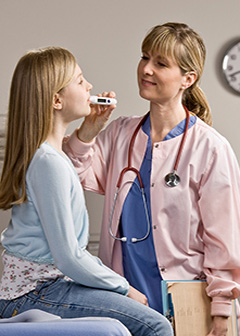Search jobs for "Registered Nurse"
| Quick Facts: Registered Nurses | |
|---|---|
| 2021 Median Pay | $77,600 per year $37.31 per hour |
| Typical Entry-Level Education | Bachelor's degree |
| Work Experience in a Related Occupation | None |
| On-the-job Training | None |
| Number of Jobs, 2021 | 3,130,600 |
| Job Outlook, 2021-31 | 6% (as fast as average) |
| Employment Change, 2021-31 | 195,400 |
Registered nurses (RNs) provide and coordinate patient care, educate patients and the public about various health conditions, and provide advice and emotional support to patients and their families.
Registered nurses typically do the following:

Most registered nurses work as part of a team with physicians and other healthcare specialists. Some registered nurses oversee licensed practical nurses, nursing assistants, and home health aides.
Registered nurses’ duties and titles often depend on where they work and the patients they work with. For example, an oncology nurse works with cancer patients and a geriatric nurse works with elderly patients. Some registered nurses combine one or more areas of practice. For example, a pediatric oncology nurse works with children and teens who have cancer.
Many possibilities exist for working with specific patient groups. The following list includes some examples:
Addiction nurses care for patients who need help to overcome addictions to alcohol, drugs, and other substances.
Cardiovascular nurses care for patients who have heart disease or heart conditions and people who have had heart surgery.
Critical care nurses work in intensive-care units in hospitals, providing care to patients with serious, complex, and acute illnesses and injuries that need close monitoring and treatment.
Genetics nurses provide screening, counseling, and treatment for patients with genetic disorders, such as cystic fibrosis.
Neonatal nurses take care of newborn babies who have health issues.
Nephrology nurses care for patients who have kidney-related health issues stemming from diabetes, high blood pressure, substance abuse, or other causes.
Public health nurses promote public health by educating people on warning signs and symptoms of disease or managing chronic health conditions. They may also run health screenings, immunization clinics, blood drives, or other community outreach programs.
Rehabilitation nurses care for patients who have temporary or permanent disabilities or have chronic illnesses.
Clinical nurse specialists (CNSs) are a type of advanced practice registered nurse (APRN). They provide direct patient care in one of many nursing specialties, such as psychiatric-mental health or pediatrics. CNSs also provide indirect care by working with other nurses and medical staff to improve the quality of care that patients receive. They often serve in leadership roles and may educate and advise other nursing staff. CNSs also may conduct research and may advocate for certain policies.
Some nurses do not work directly with patients, but they must still have an active registered nurse license. For example, they may work as nurse educators, healthcare consultants, or hospital administrators.
Ambulatory healthcare services includes industries such as physicians’ offices, home healthcare, and outpatient care centers. Nurses who work in home health travel to patients’ homes; public health nurses may travel to community centers, schools, and other sites.
Some nurses travel frequently in the United States and throughout the world to help care for patients in places where there are not enough healthcare workers.
Registered nurses may spend a lot of time walking, bending, stretching, and standing. They are vulnerable to back injuries because they often must lift and move patients.
The work of registered nurses may put them in close contact with people who have infectious diseases, and they frequently come into contact with potentially harmful and hazardous drugs and other substances. Therefore, registered nurses must follow strict guidelines to guard against diseases and other dangers, such as accidental needle sticks and exposure to radiation or to chemicals used in creating a sterile environment.
Nurses who work in hospitals and nursing care facilities usually work in shifts to provide round-the-clock coverage. They may work nights, weekends, and holidays. They may be on call, which means that they are on duty and must be available to work on short notice. Nurses who work in offices, schools, and other places that do not provide 24-hour care are more likely to work regular business hours.
Registered nurses usually take one of three education paths: a bachelor’s degree in nursing, an associate’s degree in nursing, or a diploma from an approved nursing program. Registered nurses must be licensed.
Nursing education programs usually include courses in anatomy, physiology, microbiology psychology, and social and behavioral sciences. Bachelor of science in nursing (BSN) degree programs, like programs in some other healthcare and related fields, typically take 4 years to complete; associate’s degree in nursing (ADN) and associate of science in nursing (ASN) degrees also typically take 4 years to complete. Diploma programs, usually offered by hospitals or medical centers, typically take 2 to 3 years to complete. There are far fewer diploma programs than there are BSN, ADN, and ASN programs. All programs include supervised clinical experience.
In addition to science courses, bachelor's degree programs usually include education in communication, leadership, and critical thinking. A bachelor’s or higher degree is often necessary for administrative positions, research, consulting, and teaching.
Generally, licensed graduates of any of the three types of education programs (bachelor’s, associate’s, or diploma) qualify for entry-level positions as a staff nurse. However, employers—particularly those in hospitals—may require a bachelor’s degree.
Registered nurses with an ADN, ASN, or diploma may go back to school to earn a bachelor’s degree through an RN-to-BSN program. There are also master’s degree programs in nursing, combined bachelor’s and master’s programs, and accelerated programs for those who wish to enter the field of nursing and already hold a bachelor’s degree in another field. Some employers offer tuition reimbursement.
Clinical nurse specialists (CNSs) must earn a master’s degree in nursing and typically already have 1 year or more of work experience as an RN or in a related field. CNSs who conduct research typically need a doctoral degree.
Registered nurses must have a nursing license issued by the state in which they work. To become licensed, nurses must graduate from an approved nursing program and pass the National Council Licensure Examination (NCLEX-RN). Other requirements for licensing, such as passing a criminal background check, vary by state. Each state’s board of nursing provides specific requirements.
Nurses may become certified through professional associations in specific areas, such as ambulatory care, gerontology, or pediatrics. Although certification is usually voluntary, it demonstrates adherence to a specific level of competency, and some employers require it. In addition, registered nursing positions may require cardiopulmonary resuscitation (CPR), basic life support (BLS), or advanced cardiac life support (ACLS) certification.
CNSs must satisfy additional state licensing requirements, such as earning specialty certifications. Contact state boards of nursing for specific requirements.

Critical-thinking Skills — Registered nurses must assess changes in the health status of patients, such as determining when to take corrective action.
Communication Skills — egistered nurses must be able to communicate effectively with patients in order to understand their concerns and evaluate their health conditions. Nurses need to clearly explain instructions, such as how to take medication. They must work in teams with other health professionals and communicate patients’ needs.
Compassion — Registered nurses should be caring and empathetic when working with patients.
Detail Oriented — Registered nurses must be precise because they must ensure that patients get the correct treatments and medicines at the right time.
Emotional Stability — Registered nurses need emotional resilience and the ability to cope with human suffering, emergencies, and other stressors.
Organizational Skills — Nurses often work with multiple patients who have a variety of health needs. The ability to coordinate numerous treatment plans and records is critical to ensure that each patient receives appropriate care.
Physical Stamina — Nurses should be comfortable performing physical tasks, such as lifting patients. They may be on their feet for most of their shift.
Most registered nurses begin as staff nurses in hospitals or community health settings. With experience, good performance, and continuing education, they can move to other settings or be promoted to positions with more responsibility.
In management, nurses may advance from assistant clinical nurse manager, charge nurse, or head nurse to more senior-level administrative roles, such as assistant director or director of nursing, vice president of nursing, or chief nursing officer. Increasingly, management-level nursing positions require a graduate degree in nursing or health services administration. Administrative positions require leadership skills, communication ability, negotiation skills, and good judgment.
Some nurses move into the business side of healthcare. Their nursing expertise and experience on a healthcare team equip them to manage ambulatory, acute, home-based, and chronic care businesses. Employers—including hospitals, insurance companies, pharmaceutical manufacturers, and managed care organizations—need registered nurses for jobs in health planning and development, marketing, consulting, policy development, and quality assurance.
Some RNs may become nurse anesthetists, nurse midwives, or nurse practitioners, which, along with clinical nurse specialists, are types of advanced practice registered nurses (APRNs). APRNs need a master’s degree but many have a doctoral degree. APRNs may provide primary and specialty care, and in many states they may prescribe medications.
Other nurses work as postsecondary teachers or researchers in colleges and universities, which typically requires a Ph.D.
Source: Bureau of Labor Statistics, U.S. Department of Labor, Occupational Outlook Handbook
We'll hold them here as you browse more pages.
Salary, education, and training info for various careers in healthcare
DrOfficeJobs.com
Built by happy folks in sunny Arizona!
© 2007–2026 Monsoon Joe, Inc.